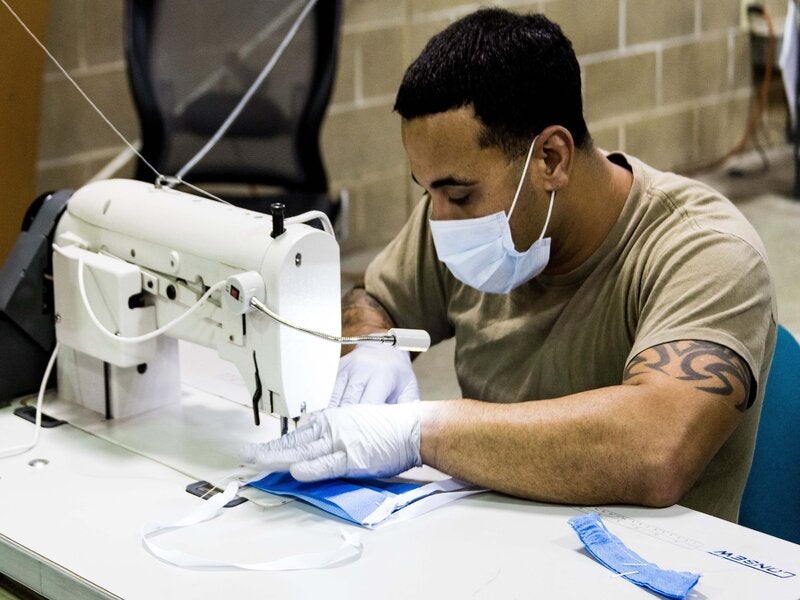
Visit our Covid-19 microsite for the latest coronavirus news, analysis and updates
Follow the latest updates of the outbreak on our timeline.

Discover B2B Marketing That Performs
Combine business intelligence and editorial excellence to reach engaged professionals across 36 leading media platforms.
Soldiers of the 1st Special Forces Group’s Group Support Battalion at Joint Base Lewis-McChord, Washington, are set to provide routine care and protection against coronavirus (Covid-19) pandemic to health care workers by manufacturing personal protective equipment.
Prototypes were created for reusable respirator masks, 3D-printed face shields and surgical masks for Madigan Army Medical Center and its partners.
Surgical masks are assembled by the battalion’s parachute riggers by repurposing their sewing machines.
With feedback from medical employees, the soldiers are expected to continue to refine the process of producing masks and improving them.

US Tariffs are shifting - will you react or anticipate?
Don’t let policy changes catch you off guard. Stay proactive with real-time data and expert analysis.
By GlobalDataThe 1st Special Forces Group’s Group Support Battalion Commander Lieutenant colonel Christopher Jones said: “The Aerial Delivery Platoon will be able to produce 200 [masks] per day, initially, with only five, lightweight sewing machines.
“We’ll get better by week’s end and be able to produce 1,000 to 1,500 during a normal workweek.”
Soldiers of the battalion continue to work and aid other forces against the battle with the disease.
The 1st Special Forces Group surgeon Army Colonel Rodd Marcum said: “The most likely application [for the masks] will be to have a symptomatic patient, one with a cough, sneezing, shortness of breath, wear the mask in order to reduce the amount of respiratory droplets contaminating the environment, helping reduce the likelihood that ill people expose others.
“Nothing is more important as we work through this unexpected challenge than following the recommendations of public health professionals. Physical or social distancing is critical in reducing the chain of transmission.”
The masks will immediately be available for personnel identified by medical professionals.





